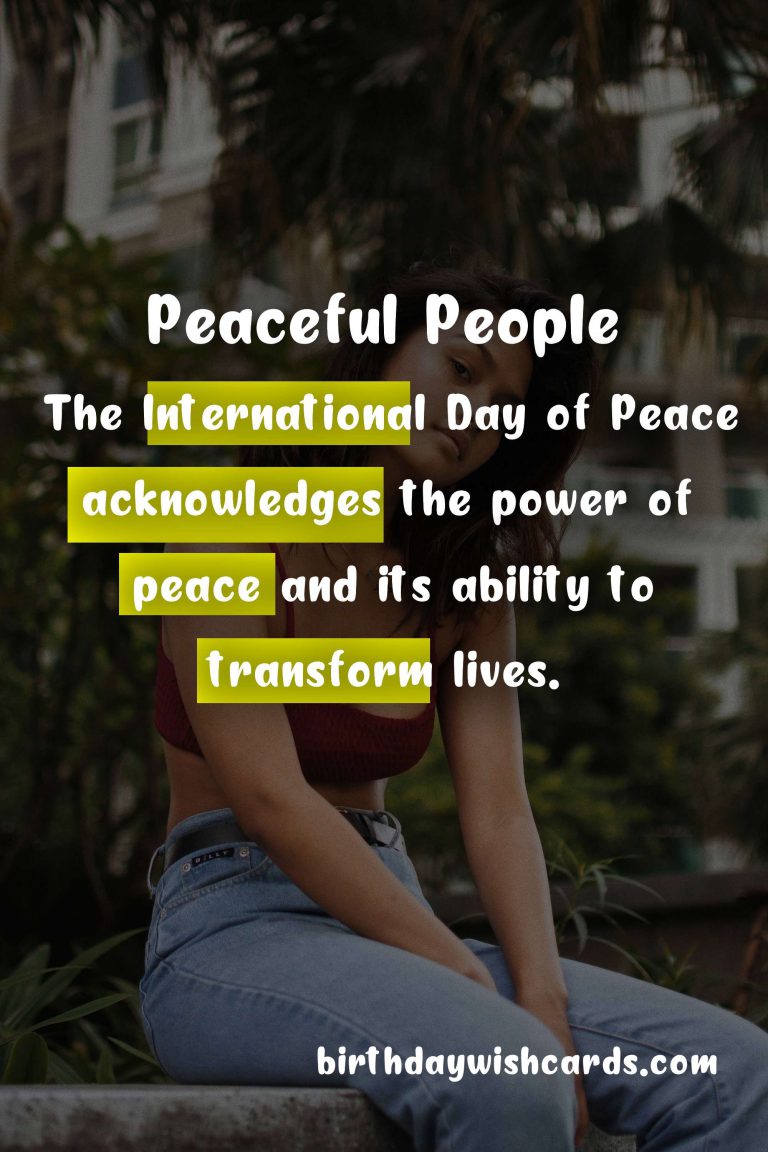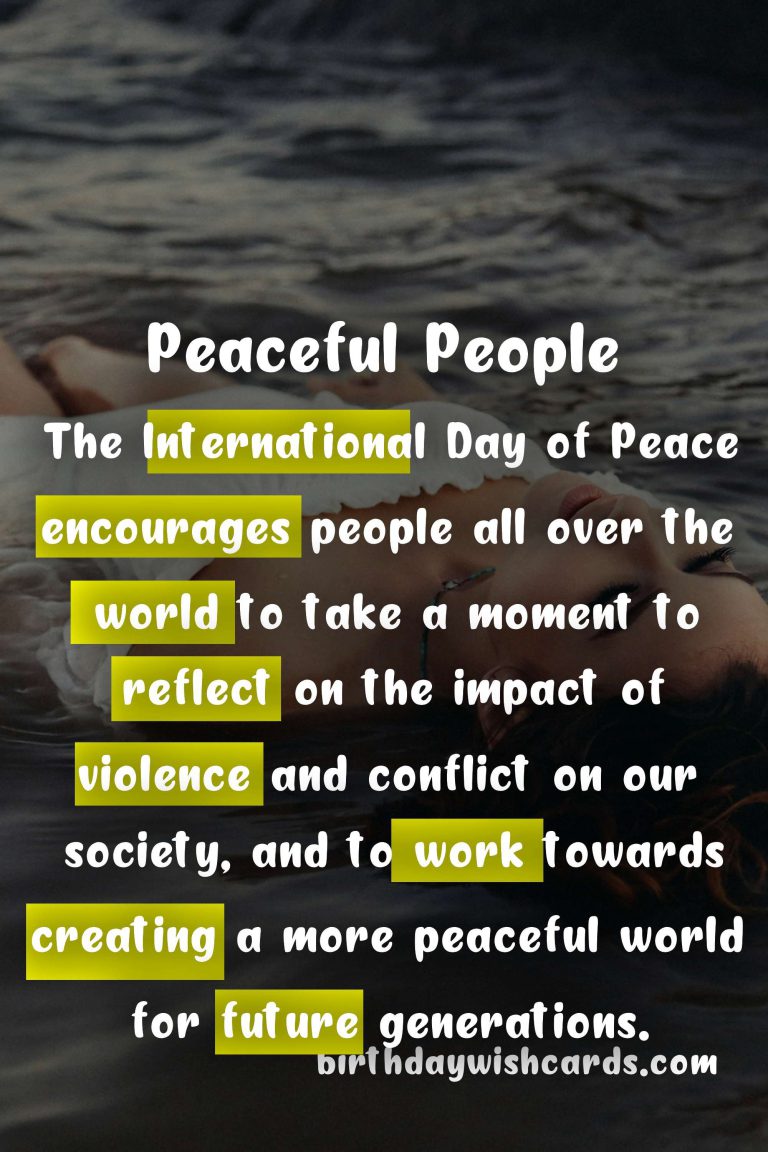
International Day of Peace: A Time for Global Unity and Understanding
The International Day of Peace, observed annually on September 21st, is a global occasion dedicated to promoting peace and non-violence. Established by the United Nations in 1981, this day calls on people everywhere to raise awareness about the importance of peace and to take action toward building a more harmonious future. In 2024, the theme “Shaping Peace Together” reminds us that peace is a shared responsibility. By working together, individuals, communities, and nations can help create a better world for all.
This special day encourages everyone to pause and reflect on the impact of violence and conflict. It is an opportunity to commit to fostering harmony, unity, and mutual understanding across diverse cultures and beliefs. The International Day of Peace is more than a symbolic observance—it is a catalyst for positive change.

The Origins and Significance of the International Day of Peace
The United Nations General Assembly established the International Day of Peace in 1981 to strengthen the ideals of peace among all nations and peoples. Since then, it has been observed every year to promote global ceasefires, peaceful dialogue, and non-violent conflict resolution.
Peace is essential for sustainable development, human rights, and the well-being of societies everywhere. This day highlights the transformative power of peace in bridging divides and fostering mutual respect. It also serves as a reminder to governments, organizations, and individuals of the urgent need to resolve conflicts and promote justice and inclusivity.

International Day of Peace in the Context of Global Challenges
In recent years, the International Day of Peace has addressed some of the world’s most pressing issues. For example, the 2020 observance focused on the challenges posed by the COVID-19 pandemic, which not only created a global health crisis but also exacerbated inequalities, heightened geopolitical tensions, and sparked new conflicts




